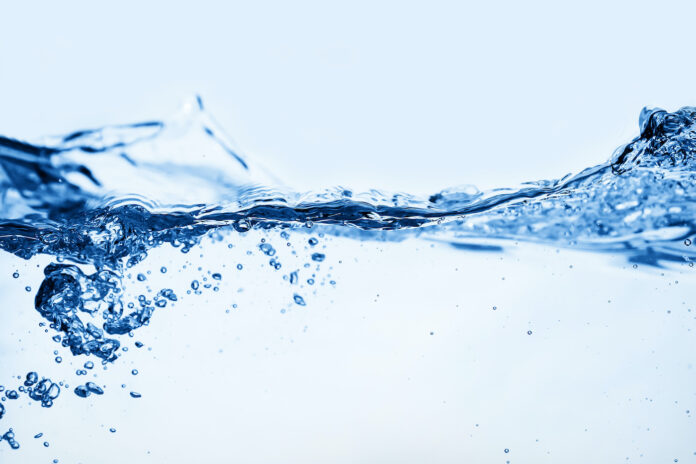
When it comes to post-harvest management, the difference between water activity and moisture content might appear to be a trivial matter. But this seemingly subtle difference can have significant implications for growers, impacting everything from product quality to profitability. Current post-harvest techniques mainly rely on moisture content alone—and that’s a mistake. Understanding water activity is crucial for maximizing yield, minimizing waste, and ensuring product safety.
Water activity vs moisture content
Water activity solely measures the energy status of water in a substance. Represented on a scale of 0 to 1, it accounts for both the quantity and quality of water, and it provides a more accurate assessment of a substance’s stability and susceptibility to microbial growth. Pure, distilled water has a water activity of 1. A value of .6 is the optimal point to prevent microbial growth and not lose any yield.
Moisture content, on the other hand, quantifies the amount of water present within a substance (cannabis, in this case) and typically is measured as a percentage. It’s a fairly straightforward metric that is used in traditional post-harvest assessments. The problem is that moisture content fails to differentiate between bound water—water that is tightly held within cellular structures—and unbound water, which is freely available for microbial growth.
Regulatory standards
While the importance of water activity in post-harvest management is gaining some recognition, regulatory standards have been slow to catch up. One recent exception is a memorandum released by Massachusetts’s cannabis regulatory agency. The memo to independent testing laboratories in the state highlights the significance of water activity in ensuring the safety and quality of cannabis products, but it simply provides guidance and does not mandate implementation. The reality is that most regulatory bodies still focus on traditional moisture content testing requirements.
The pharmaceutical and food industries have long recognized the importance of water activity and its critical relationship to product safety and stability. Water activity measurements are already standard practice in those sectors. For non-sterile pharmaceutical products—like cannabis—mitigating the risk of microbial growth depends mainly on the ability to reduce moisture levels to the point below which the products can support microbial growth. From a federal compliance standpoint, it’s essential to measure accurately when microbial growth initiates and to demonstrate the associated risk has been managed effectively through product traceability protocols.
With the possibility of rescheduling on the horizon—and potential new federal regulations that could affect the industry in big ways—growers should prepare for water activity to become a required testing parameter. They also should be prepared with the ability to prove conclusively the risk has been managed and their product is in compliance.
In terms of how likely the federal government may be to reschedule cannabis in the near term, it is telling that the memo noted above from Massachusetts’s regulatory agency was released “…to provide clarification, ensure consistency, and establish standards following the latest considerations from the United States Pharmacopeial Convention (USP).” While the USP is an independent body, it works very closely with the U.S. Food and Drug Administration (FDA) and, according to the memo, “…the FDA-USP collaboration is essential to ensure appropriate quality standards and, where applicable, standards that reflect FDA-approved product quality standards.”
The bottom line
The importance of understanding and monitoring water activity extends beyond regulatory compliance, however. It also directly impacts product stability and profitability. Water activity plays a critical role in shelf stability and influences factors like texture, flavor, and microbial spoilage. By controlling vapor pressure during the drying and curing processes, optimal water activity levels of 0.6 easily can be established and consistent product activity maintained.
Much like the cooking technique sous vide, during which food is cooked at a precise temperature to achieve optimal texture and flavor with edge-to-edge consistency at a target temperature, precision post-harvest techniques based on water activity measurements allow growers to fine-tune their processes and eliminate overdrying or underdrying. The result is enhanced quality and maximized yield, reducing potentially significant financial losses associated with suboptimal drying processes.
Overdrying leads to unnecessary weight loss that reduces overall yield and profitability. Even a miniscule percentage of reduction in water activity caused by overdrying can result in losing thousands of dollars from a harvest due to evaporated weight. Conversely, failing to dry products sufficiently can result in microbial contamination and spoilage that can be financially—and reputationally—devastating and present serious safety concerns.
The distinction between moisture content and water activity is not merely academic. It’s a real and practical consideration with tangible implications for growers and the industry at large. By recognizing the importance of water activity in post-harvest management and embracing precision drying techniques, growers can optimize quality, minimize wasted time and product, and ensure compliance with future regulatory standards.

David Sandelman is chief operating officer and chief technology officer of Cannatrol, a drying, curing, and post-harvest storage system. He invented and patented Vaportrol® technology, a system that controls water loss by regulating vapor pressure to ensure the correct final water activity, which is crucial for terpene preservation, maximized potency, increased yield, and premium quality.
